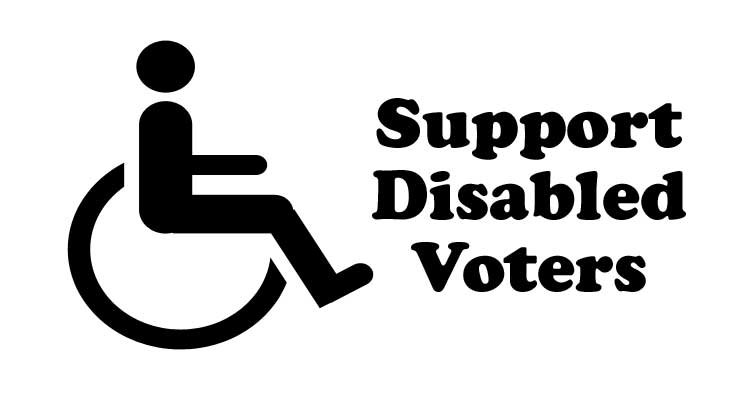 I have written about how ballot access requirements discriminate against disabled candidates for state or federal office. These include state courts not mandating any accommodations to make it easier to gather signatures under state human rights laws.
I have written about how ballot access requirements discriminate against disabled candidates for state or federal office. These include state courts not mandating any accommodations to make it easier to gather signatures under state human rights laws.
It is important to note that lacking money makes any task harder. Senator Tammy Duckworth did not have the same problem with ballot access when she ran for U.S. representative in Illinois District 8. She did not even sign her own petition. She paid someone else to do this for her.
When you have money, your wheelchair does not make as much of a difference. But this shows how different most disabled people are in their poverty from those who want to govern them. It is hard to get a job when you are disabled and discrimination still runs rampant regardless of the ADA. Benefits for disabled people such as SSDI and SSI are extremely low, hovering around the poverty line.
Either you have wealthy friends or you are wealthy yourself. Tammy Duckworth as a disabled military officer from active service had heaps of money and a great story to go with it. But when you are deprived of a pension or even health care after being poisoned by the U.S. Military, like me, there is no money to buy the time of people to gather signatures. Straw v. McDonough, 20-2090 (Fed. Cir. 1/15/2021); Straw v. U.S., 16-17573 (11th Cir. 2019).
Lack of justice translates into poverty, discrimination, weakness, and retaliation, and eventually an early death because disabled people are poor and poor people die earlier. Bipolar is especially harsh. This is another reason to take away any nonsense requirement like masses of ballot access signatures that do not prove anything about popularity, but only serve to create barriers to ballot access for the poor and disabled.
Courts can create or remove barriers for those whose property has been taken by the United States. This puts courts at the epicenter of power. Who would have known about Ralph Nader without his large civil damages payment from a court case against GM? Courts make or break those seeking justice and the money and potential political power that go with it. Compensating property can be done at the U.S. Court of Federal Claims when the federal government (including judges) takes property worth over $10,000 for public use without paying for it. Straw v. U.S., 21-1596, 21-1597, 21-1598, 21-1600, 21-1602 (Fed. Cir.).
This “Tucker Act” protection gives life to the 5th Amendment’s Takings Clause, and can turn the tables when judges elsewhere take property without paying for it. Smith v. United States, 709 F.3d 1114, 1115-1117 (Fed. Cir. 2013). Webb’s Fabulous Pharmacies, Inc. v. Beckwith, 449 U.S. 155 (1980) showed that while government may try to “recharacterize” property to take it without compensation, this trick is rejected. While the 5th Amendment does not create property, it does protect citizens when recognized property is taken away. So, if a disabled candidate has valuable property like a law license, the 5th Amendment compensation for taking that license can make possible political activity and campaigns to increase disability civil rights protections and democracy access. Money talks.
Leave a Reply